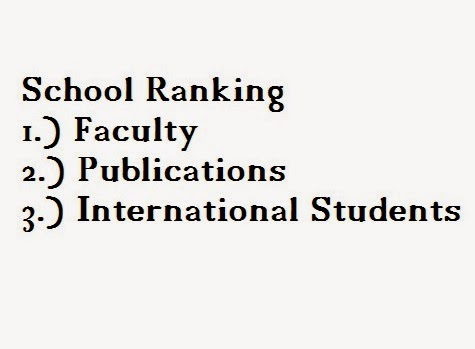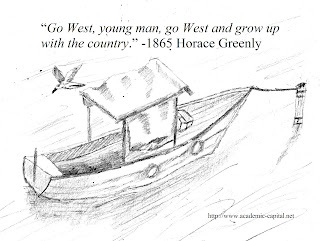The value of a college education
cannot be underestimated in an increasingly complex world. Business education is
important in fostering new minds that will go forth and try out their ideas in
the international market. Research helps highlight how a simple majority of
business college students seek to develop their own business operations but
feel as though these opportunities may not be forthcoming.
In 1865 Horace Greely stated, “Go West, young man, go West and grow up with
the country.” The commonly used quote is deeply rooted in the psychology of
young people who desire to flap their wings and seek their fortunes. The nature
of business is about flapping wings and trying to get off the ground. Many do,
many more do not, but it is the journey that takes precedence.
One of the reasons why young business students are
so eager to start their own entrepreneurial endeavors lays in the uncertainty
the recession has created over the past decade. They were reared in an era
where corporate shifts, layoffs, and the movement of jobs overseas were common.
In their effort to create some level of personal stability they seek the path
of self-determination.
According to Summ, et. al. (2001), “Labor market conditions for most demographic
groups of U.S. workers have been quite weak in recent years (2008-2010) due to
the adverse employment impacts of the Great Recession of 2007-2009 and the
anemic job recovery during the first 18 months following the trough of the
recession in June 2009.”
As this group of students were attending high school and
thinking of long-term opportunities the economy took a “nose dive”. While moving
into college this same group of students hoped for business glory but suffered
from declining opportunities. Despite the difficulties such students face they
still seek to brand their mark on the global world and college continues to be an
important learning avenue to allow that happen.
A study conducted by Tomkiewicz, Bass, &
Robinson (2012) surveyed a total of 123 students in an AACSB mid-eastern accredited
school. Students were in attendance of the
college of business and part of either a Fundamentals of Business course or a
Strategic Management course. Participants were asked to consider their current
station in life and determine where they would like to work in the future. Each
student also completed the Fear of Success and the Fear of Appearing Incompetent
instrument as part of the study.
Findings:
-55% of students wanted to have their own business.
-Only 34% of those who wanted a business felt they
actually be able to do so.
-45% of students had a preference for working in
organizations.
-100% of those who had a preference for working in
organizations stated that they are likely to have an opportunity to do so.
-Males were more enthusiastic about starting their
own business.
-Comparing graduating students with new students
found that both had similar preferences for owning their own businesses but
fewer graduating students felt they would have an opportunity to do so.
Analysis:
The information from the results indicated that the
majority of students had a preference for working within their own business
while a far majority felt that they would not have an opportunity to do so. The
study helps highlight how business college students have a desire to be
independent in their work habits and control the nature of their work. However,
as they become more aware of the trials, depth, and financing needed to run
their own businesses such expectation declines.
Sum, A., Khatiwada, I. and Pahna, S. (2011). The continued collapse of the nation's teen
summer job market: Who worked in the summer of 2011? Center for Labor
Market Studies Northeastern University, August.
Tomkiewicz, J. Bass, K. & Robinson, J. (2012).
Student propensity toward business ownership. College Student Journal, 46 (4).


